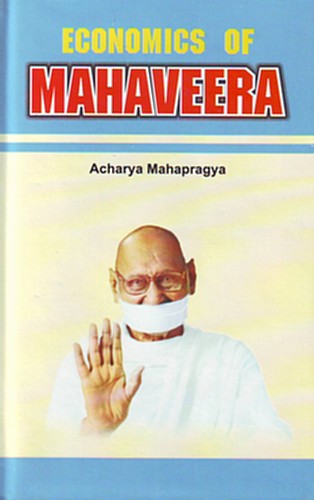
Question:
The Jains assigning the greatest importance to non-possession are considered rich. How is the faith in accumulation achieved out of non-possession?
Answer:
When a question is asked how darkness comes out of light, nothing remains for further thinking. There is no relation at all between light and darkness. But sometimes an Illusion arises and because of that illusion, such a question is asked.
The faith in non-possession never arises from the desire of possession. The Jain religion is based on the faith in non-possession, non-violence and on the principles of anekanta. Anekanta is a principle. Non-possession is a principle. Non-violence is a principle; to follow one or the other is another matter.
The principle of non-possession is adorable in its own high role. To reach that point involves a long journey, we should know this. A person may have just commenced his journey. He can go along and reach the destination. But to believe that he reaches the destination immediately could be a big illusion. Today, let us assume somebody starts practicing religion and becomes a Jain. That he would achieve the faith of non-possession at once would be an unexpected occurrence. If this happens, if in a moment everything is accomplished, that is soon after becoming a Jain one becomes a non-possessor, then the journey on the path of religion would be too short. The journey of sadhana is not so short that whenever one desires and dreams about sadhana, he reaches perfection. Then there is no need to do anything, I do not understand how this misunderstanding is nurtured and maintained?
The Jain society continues to accept the principle that non-possession is its ideal and goal, and it has to be achieved through effort. For a hermit, this is the right goal. He is a non-possessor - he gives up everything. But for the society, non-possession is a matter of principle. Keeping the ideal of non-possession in view, the society accepts the limitation of wants as a small vow. It starts keeping a check on wants bit by bit. The want that is experienced is continuously controlled and curtailed, as much as is possible. In this way, one will proceed in the direction of limiting desires. In due course, the process will gather momentum. While thus proceeding steadily, one reaches the end, the state of non-possession. However to think that the entire Jain society will reach the stage of non-possession would mean that the entire society will become ascetic.
Bhagwan Mahavira has given the rule of non-possession for the ascetic; he has not made use of terms like non-possession for a person with family life. He talked about limiting desires. The shravaka (the devotee) should limit his desires. The desires are endless and should at least be kept within some limit.
On the principle of limitation, he made two points, the first one was that the means of earning should not be unethical, should not be abnormal. Mahavira has provided a complete moral code for the common societal person. Under that code, all kinds of prohibited conduct have been forbidden. Adulteration, selling spurious things, after showing genuine samples, cheating, betraying trust and the like, are all prohibited activities or means.
With these two restraints, there is no further restriction on how much is earned. If a person earns by moral means, he may earn hundreds of thousands millions of rupees. After earning, he does not make use of it for himself and observes complete moderation. It is a living like the life of shravaka Anand. He owned wealth worth millions, had business worth millions, but he was moderate. He led such a simple life, as even a common man may not be able to live.
These two principles are introduction to the principle of non-possession for the common person. Both principles are significant. If Jain society accepts these two points, a big illusion would disappear.
It appears to me that any society is a follower of religion; it is not necessarily a co-traveler. This is true of every religion. People go behind religion. They do not go with religion. To expect from these followers that the principle of non-possession would flourish with them does not appear to me to be realistic.
 Acharya Mahaprajna
Acharya Mahaprajna

